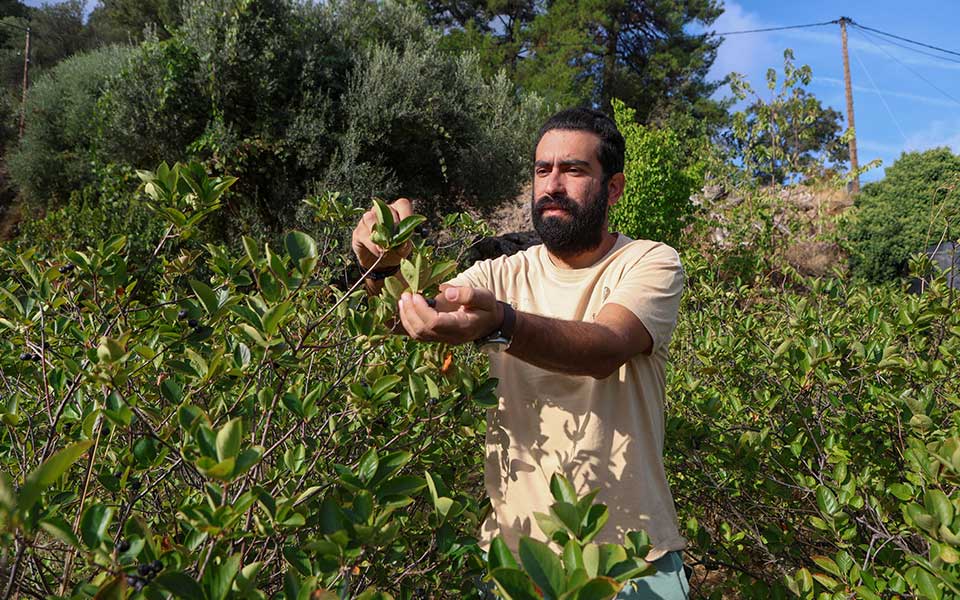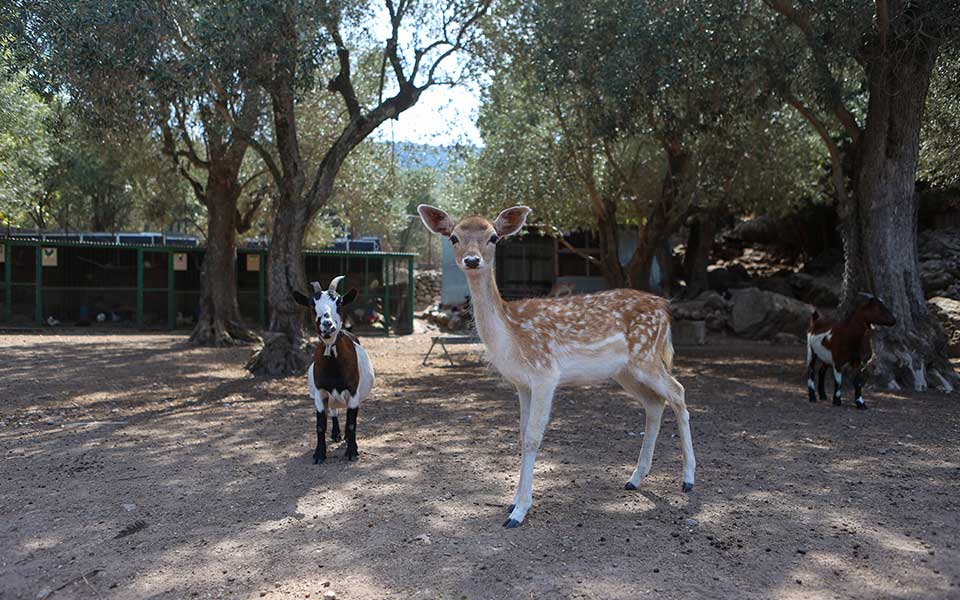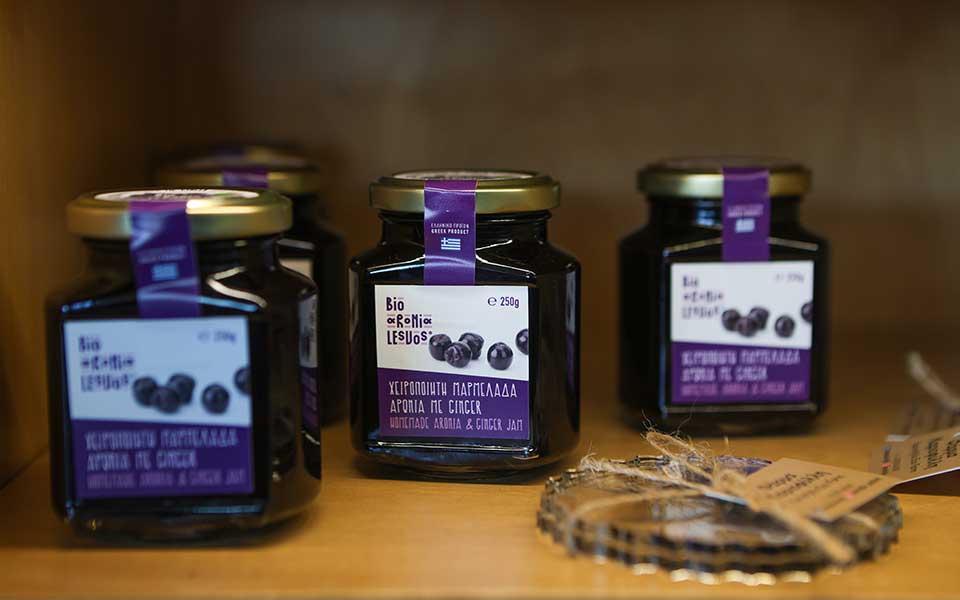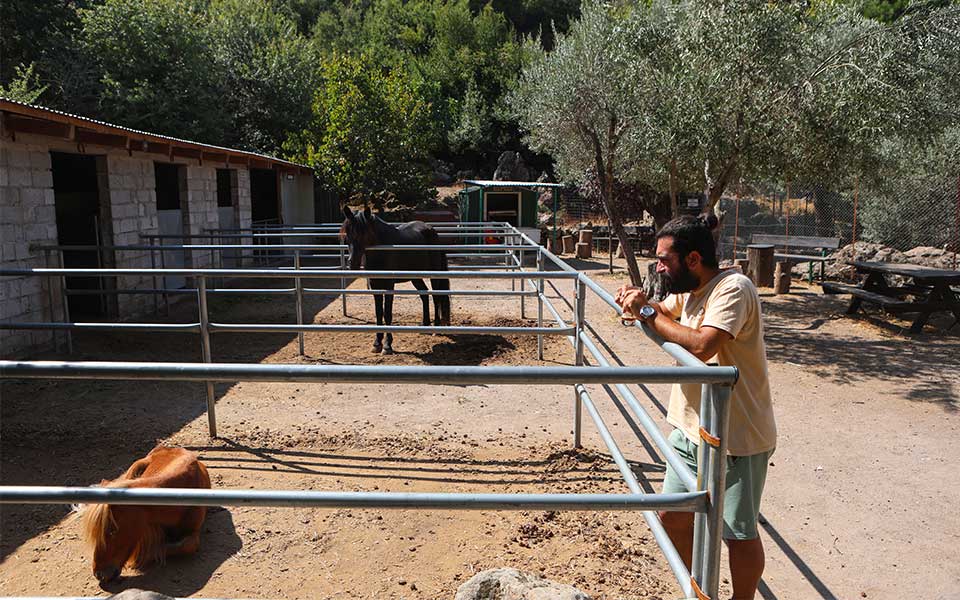Since opening his farm to the public in 2018, the young farmer Giorgos Kariofyllis has offered hundreds of free tours to families and visitors, introducing them to his unique way of life in Lepetymnos, on Lesvos. “Where are you spending all your money, kid?” his fellow villagers used to ask him about a decade ago. This was after Giorgos, having graduated from the Department of Mediterranean Studies at the University of the Aegean on Rhodes, returned to his ancestral village and purchased some land –with the guidance of his “lawyer,” as he jokingly calls his agricultural consultant. “I inherited a small plot from my father, just enough to produce the year’s supply of olive oil, like most people do in Lesvos. But I wanted more – I was looking for something different,” he explains. “As a kid, I was fascinated by farms, and during my travels abroad, I always visited them. One farm in Switzerland left me completely captivated.”

© Elias Marcou
At Kariofyllis Farm, you’ll find yourself amazed by over 300 free-ranging animals of various species, all living on 1.8 acres of land. Among the inhabitants are pygmy goats, Cameroon sheep, Cyprus wild sheep, and even some animals brought here by different organizations. Giorgos works closely with the Municipality of Western Lesvos, providing care and refuge for animals in need, such as those abandoned during the 2022 Vatera wildfire. He also takes in pets from individuals who often realize that “rabbits aren’t exactly ideal house pets.”
The tour doesn’t end there. Visitors can marvel at rare, black-feathered Indonesian chickens, fallow deer, Mandarin ducks, Carolina ducks, peacocks, regal pheasants and a pond filled with exotic fish and the local freshwater Lesvobinos. “None of them are for eating,” Giorgos assures with a smile, preempting the question.

© Elias Marcou
Circular Economy and Aronia
At Kariofyllis Farm, the concept of the circular economy is naturally integrated into daily life. For instance, Giorgos’ wife, Sofia, turns the impressive peacock feathers that are shed each year into bookmark souvenirs. (A marine biologist who teaches at the Department of Oceanography at the University of the Aegean, Sofia helps on the farm whenever she finds time.)
The goats, which graze freely on the mountain, contribute to natural brush clearing, helping to prevent wildfires. “Why do we have wildfires? Because people have become disconnected from nature,” Giorgos explains. He adds that one of the reasons he created this farm was to teach city children about domesticated animals. “But not for an entrance fee – this isn’t a zoo,” he emphasizes.

© Elias Marcou
Kariofyllis Farm is a fantastic destination for the whole family. Visitors can explore freely, and before leaving, they can’t help but take home “something different”—the chokeberries, or aronia berries, that Giorgos had always dreamed of cultivating. This superfood, grown in the high mountains of Lepetymnos, is made into jam, used in tea sachets, or dried out for a longer shelf life.
Since last March, visitors can enjoy the breathtaking views stretching to Mount Athos from the café next to the farm. There, they might meet Fifi, the resident cat who never leaves the café, or Liza, a rescue dog from Mandamados who occasionally ventures down to the village. The stables on the farm are another popular attraction; they house ponies, horses and donkeys.

© Elias Marcou
Giorgos tends to his “animal kingdom” daily, with the help of Zeus and Hera, two purebred Greek shepherd dogs, and Lena, a German shepherd. Hera even “trains” and “guides” the new dogs upon their arrival in a 3000-sq.m. space used for adapting them to their new environment; at other times, the space is used as a breeding facility.
Since the animals live naturally, with minimal medical intervention, Giorgos is accustomed to their passing but finds comfort in knowing that they lived freely and humanely. For example, Alfie, a small goat that was born disabled, lived a full four years, far exceeding his expected lifespan.
Kariofyllis Farm, Lepetymnos, Lesvos, Tel. (+30) 697.945.8991












